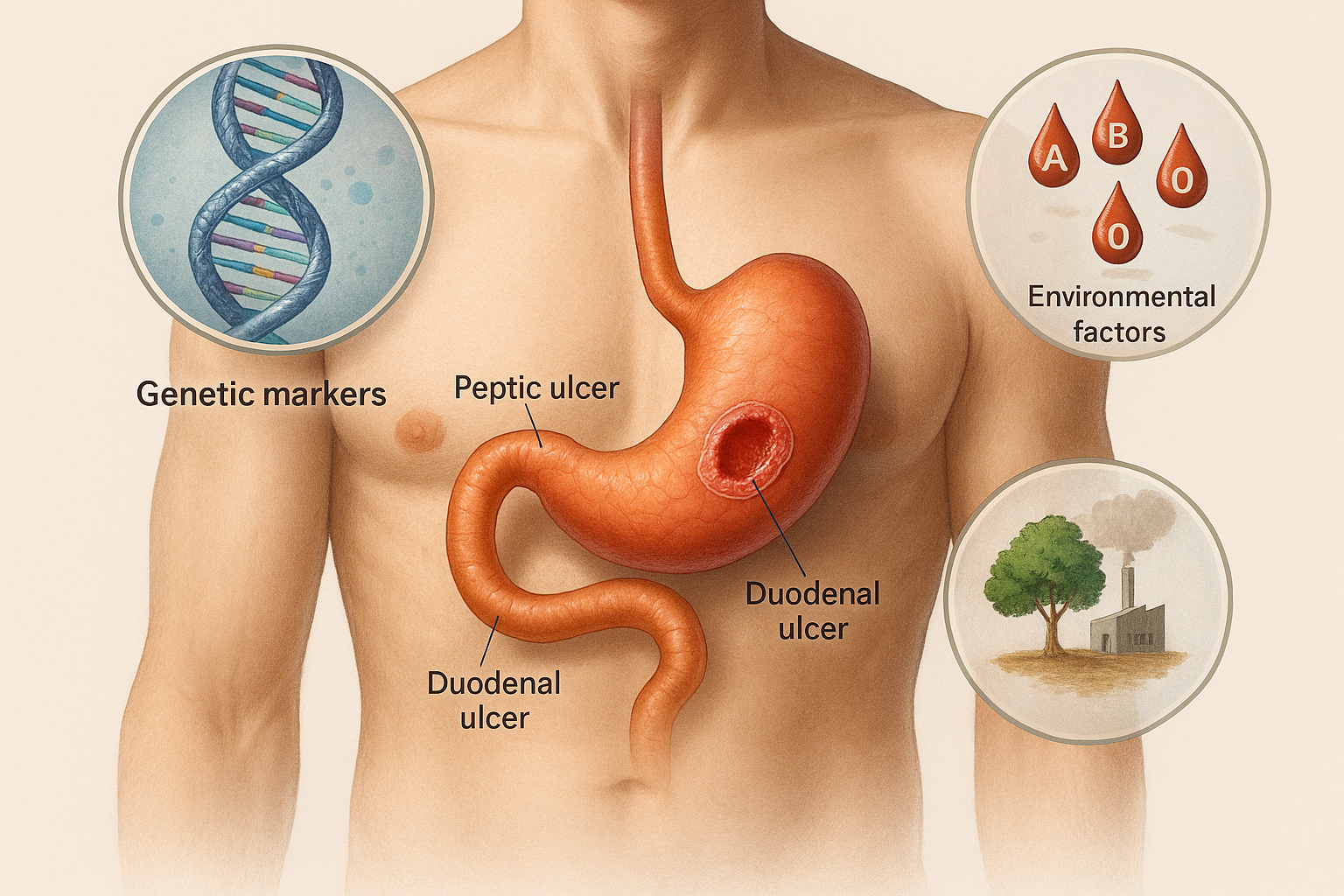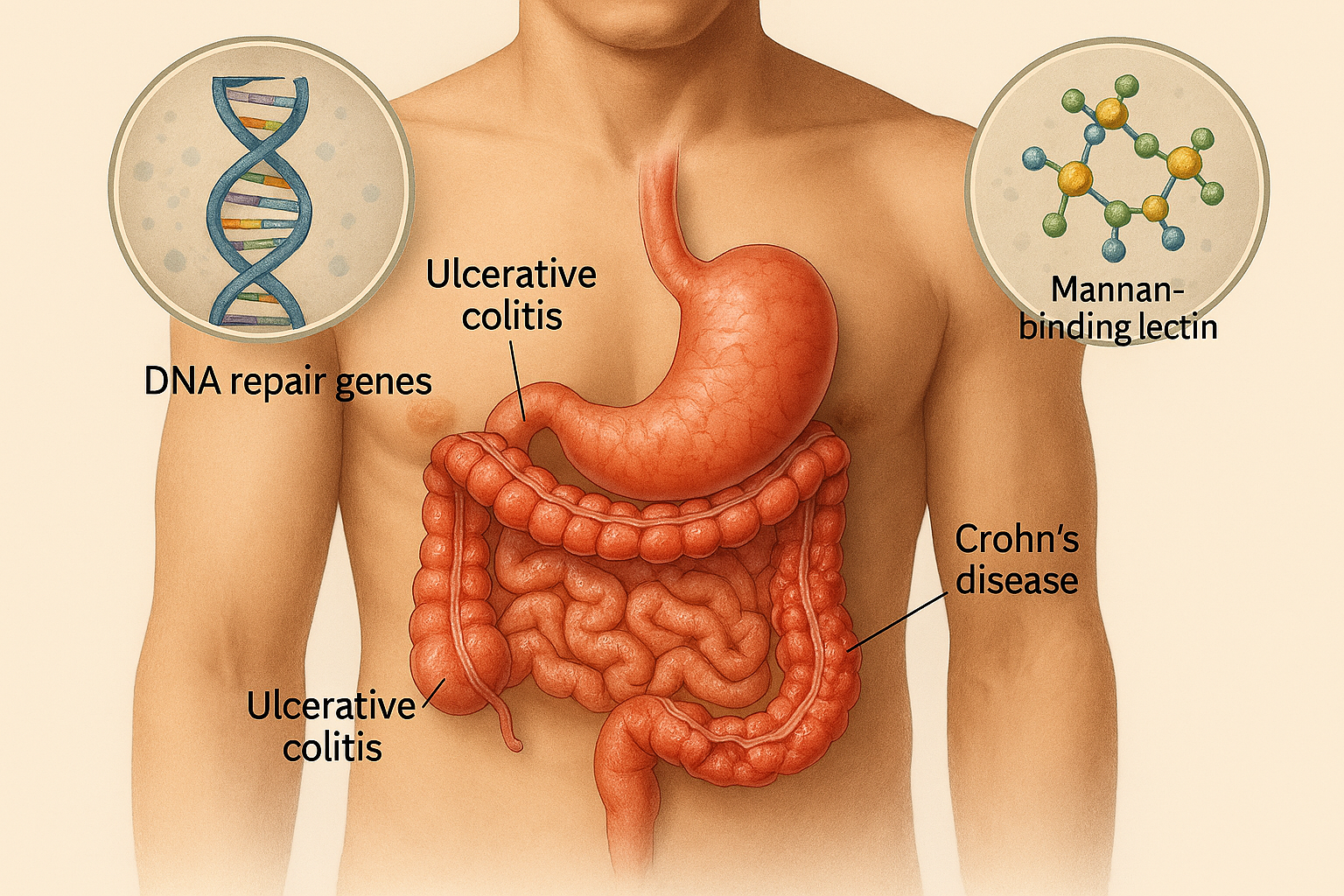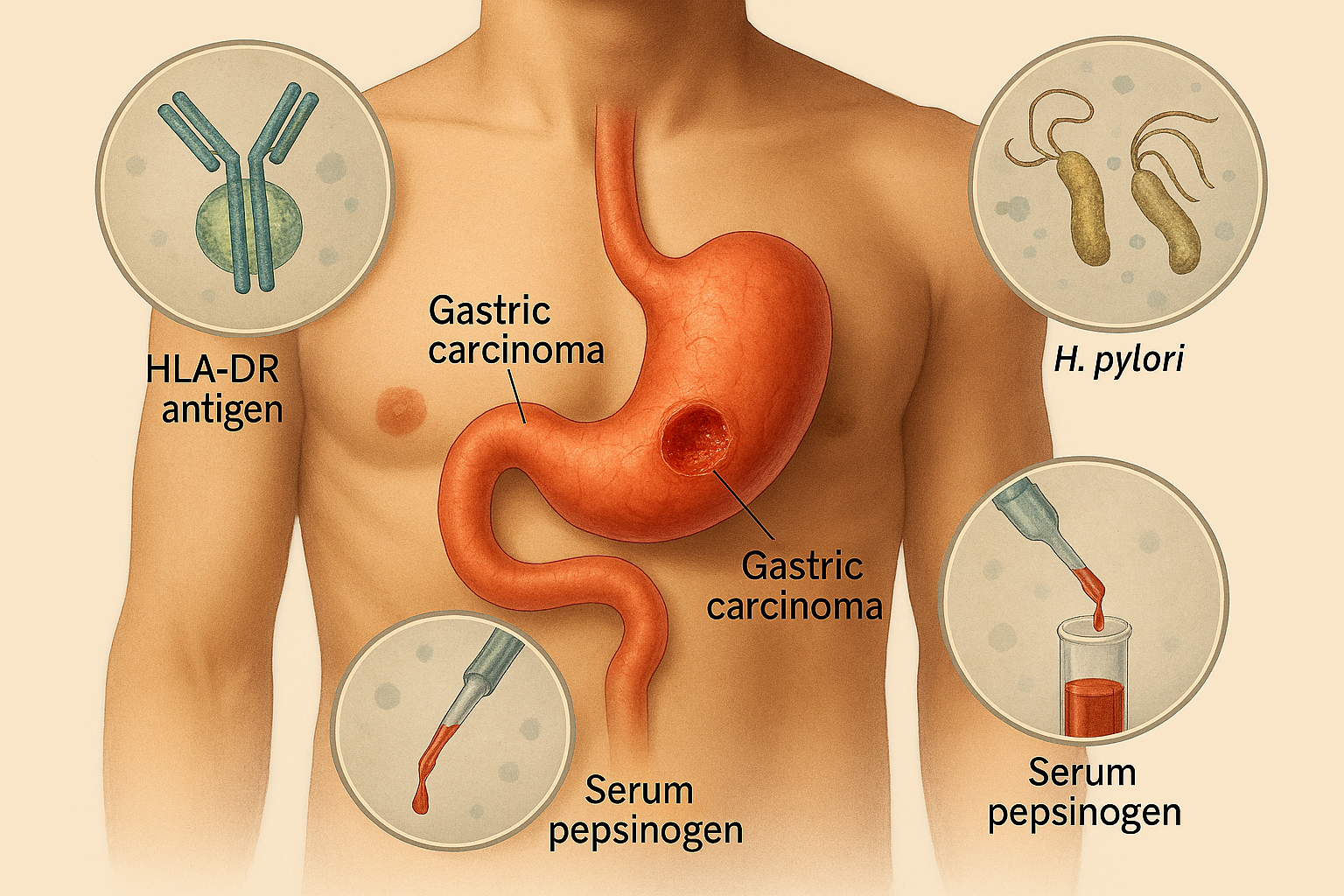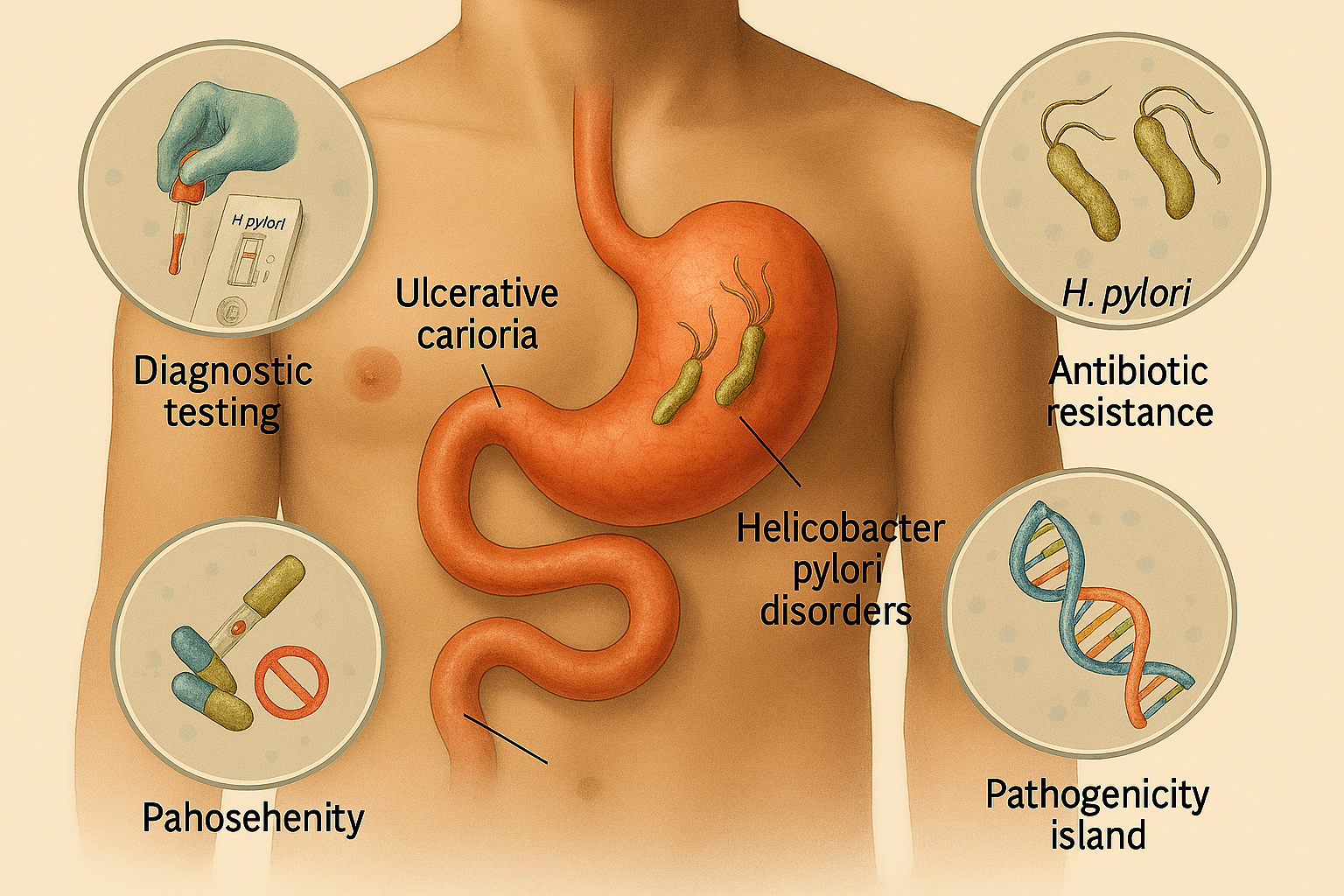Gastrointestinal Disorders
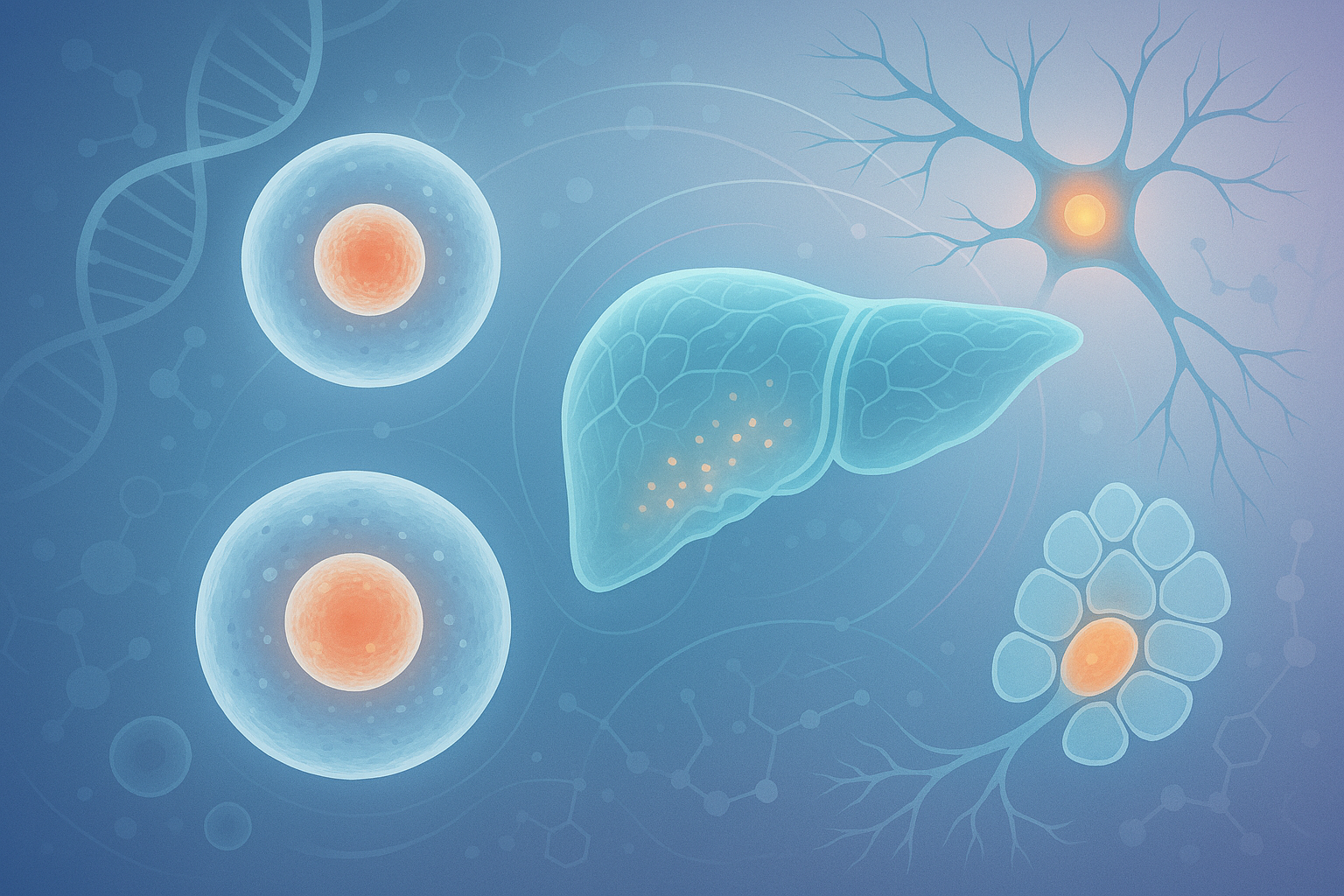
The Centre for Liver and Digestive Research (CLRD) stands as a beacon of excellence in the field of gastrointestinal sciences, built on decades of pioneering research and clinical breakthroughs. Our journey began with a vision to bridge the gap between basic science and clinical application, and today, we are recognized for transforming the understanding and management of complex digestive disorders.
A Multi-Dimensional Approach
At CLRD, gastrointestinal research is not confined to isolated studies, it is an integrated ecosystem combining:
- Molecular and Genetic Investigations: Decoding the genetic predisposition to acid-peptic disorders, inflammatory bowel diseases, and gastric malignancies.
- Advanced Diagnostic Innovations: Developing rapid, non-invasive diagnostic tools, biomarker-based assays, and genomic fingerprinting for early disease detection.
- Therapeutic Advancements: Translating laboratory insights into targeted therapies, personalized treatment protocols, and preventive strategies.
Why CLRD is a Global Leader
Our expertise spans the entire spectrum of gastrointestinal disorders, including Peptic Ulcer Disease, Duodenal Ulcer, Ulcerative Colitis & Crohn’s Disease, Gastric Carcinoma, and Helicobacter pylori-related conditions. Through sustained research efforts, we have:
- Unraveled Pathophysiological Mechanisms: From prostaglandin involvement in ulcerative colitis to immune dysregulation in Crohn’s disease.
- Identified Genetic and Environmental Risk Factors: Studies on pepsinogen genetics, ABO blood group correlations, and lifestyle determinants have shaped preventive care.
- Enhanced Clinical Outcomes: By integrating molecular diagnostics with evidence-based therapies, we have improved survival rates and quality of life for thousands of patients.
Impact Beyond Borders
Our work has been published in leading international journals and cited globally, influencing clinical guidelines, public health policies, and academic curricula. Collaborations with global research networks have amplified the reach and relevance of our findings, positioning CLRD as a trusted authority in digestive health.
Research-Driven Excellence
From early investigations into peptic ulcer pathogenesis and genetic predisposition to cutting-edge molecular profiling of Helicobacter pylori strains, CLRD’s contributions have been instrumental in redefining gastroenterology in India and globally. Our research portfolio includes:
Peptic Ulcer Disease & Duodenal Ulcer
CLRD’s landmark studies explored genetic markers such as pepsinogen polymorphisms, ABO blood group correlations, and environmental factors influencing ulcer susceptibility. These findings provided a foundation for personalized risk assessment and preventive strategies.
Ulcerative Colitis & Crohn’s Disease
Through immunogenetic research, CLRD identified functional polymorphisms in DNA repair genes (XRCC-1, APE-1) and Mannan Binding Lectin variants, elucidating their role in inflammatory bowel disease (IBD) pathogenesis. Our epidemiological studies in South India have contributed to global IBD prevalence data and therapeutic insights.
Gastric Carcinoma
CLRD pioneered investigations into HLA-DR antigen associations and serum pepsinogen levels in gastric cancer patients, enabling early detection strategies. Recent work on molecular genotyping of H. pylori virulence genes (cagA, vacA) has advanced prognostic modeling for gastric malignancies.
Helicobacter pylori-related Disorders
With over two decades of focused research, CLRD has developed rapid, non-invasive diagnostic protocols, studied antibiotic resistance patterns, and characterized strain-specific pathogenicity islands. Our genomic analyses revealed unique bio-geographic signatures of Indian H. pylori isolates, influencing treatment guidelines.
Translational Impact
The integration of molecular genetics, immunology, and clinical gastroenterology at CLRD has led to:
- Development of novel diagnostic assays (ELISA, multiplex PCR, salivary-based tests).
- Identification of biomarkers for disease risk and progression.
- Contribution to national guidelines for managing acid-peptic disorders and H. pylori infections.
Global Collaborations & Knowledge Dissemination
Our work, published in leading journals such as Gut, World Journal of Gastroenterology, and Indian Journal of Gastroenterology, reflects CLRD’s commitment to advancing science and improving patient care. Collaborative projects with international research groups have amplified the global relevance of our findings.

